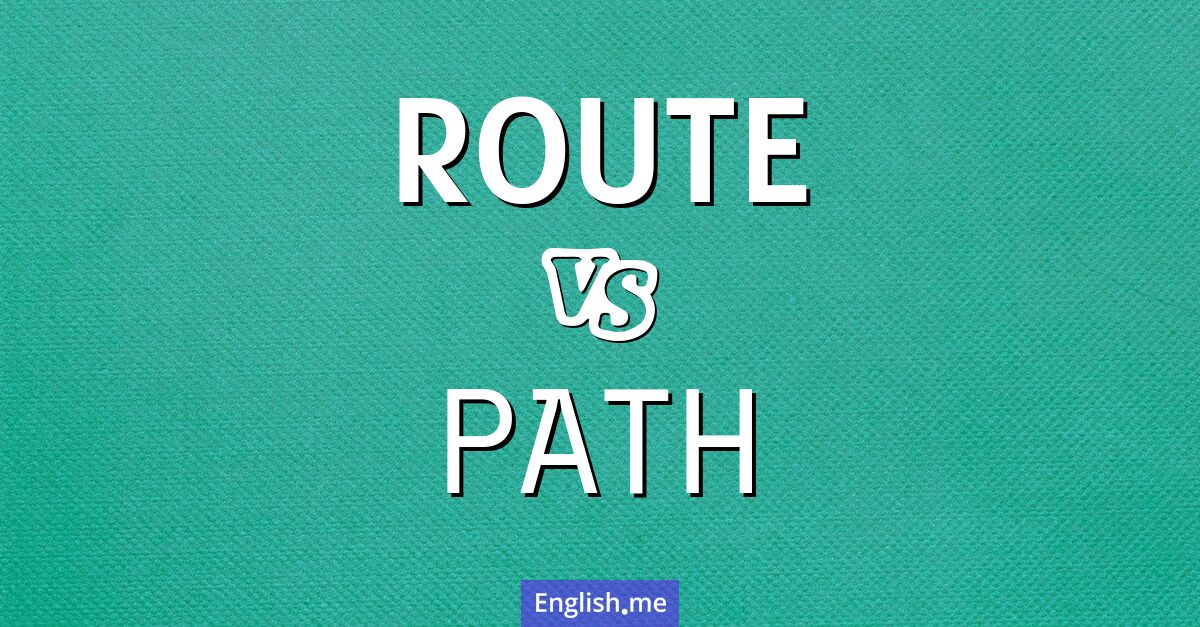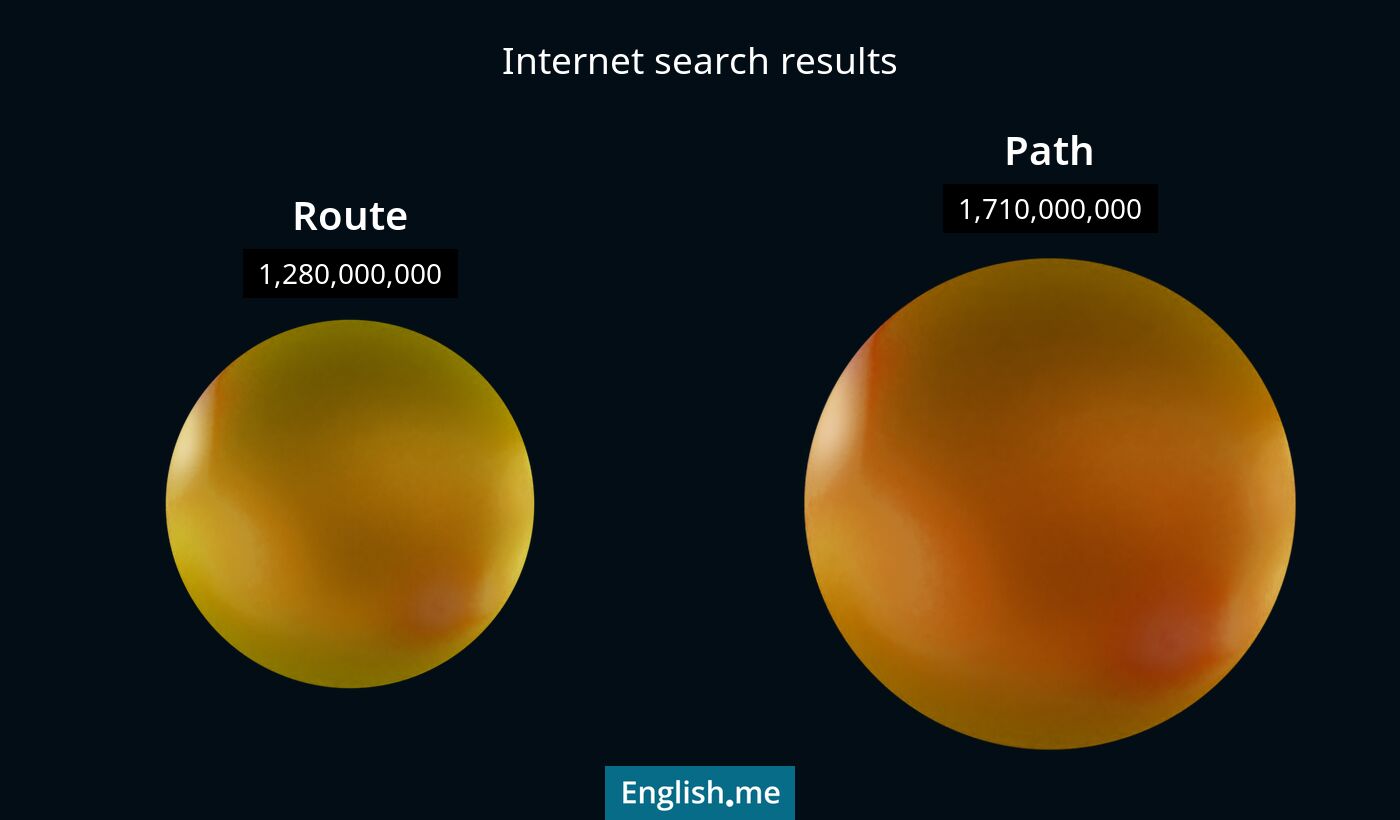"Route" and "path": navigating through language
Reviewed and edited by  Anwar Kareem 05/10/2024, 15:12
Anwar Kareem 05/10/2024, 15:12
English.me team member

 What is similar?
What is similar?
Both "route" and "path" refer to a way or course taken to reach a destination. They can both describe physical or metaphorical passages.
 What is different?
What is different?
A "route" often refers to a planned or fixed course, typically used in the context of transportation or travel. A "path" usually implies a more informal or natural way, often found in nature or created by usage.
 Which one is more common?
Which one is more common?

 Examples of usage
Examples of usage
Route- The bus takes a different route during the weekend.
- He planned the route carefully before starting the road trip.
- This hiking route offers stunning views of the valley.
- We followed a narrow path through the forest.
- She chose a path in life focused on helping others.
- There's a well-trodden path that leads to the river.

 English
English español
español française
française italiano
italiano deutsche
deutsche 日本語
日本語 polski
polski česky
česky svenska
svenska Türkçe
Türkçe Nederlands
Nederlands